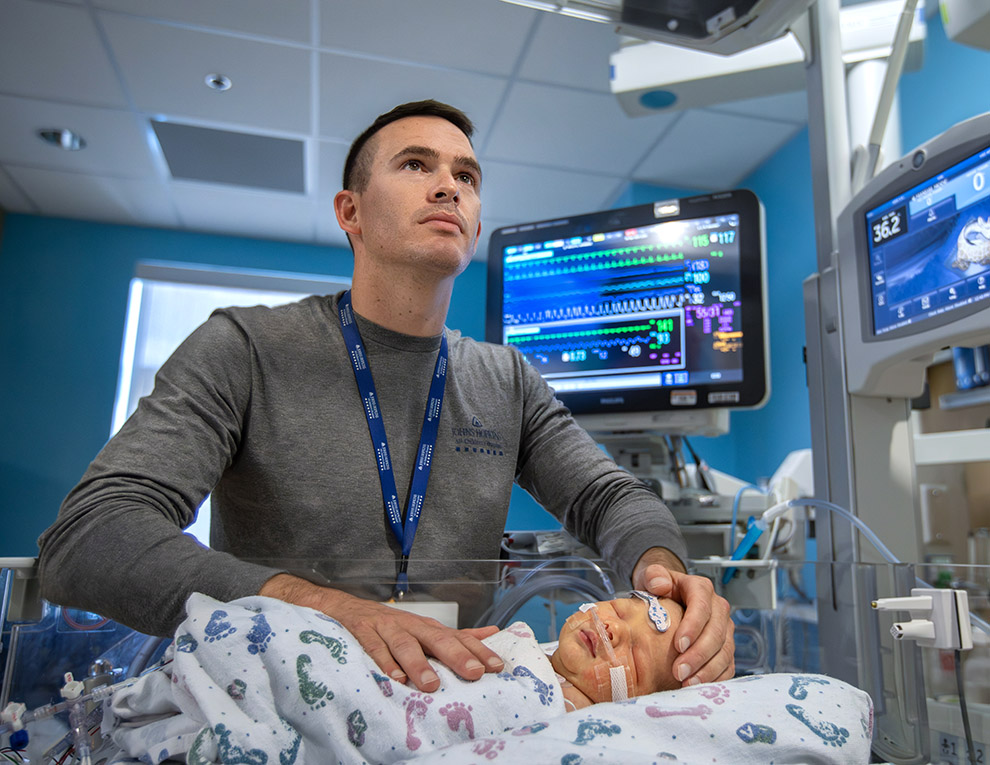A Nurse Making a Difference

Evan Kansorka, R.N., helps care for baby Archer in the CVICU.
When other kids were dreaming of becoming astronauts or athletes, Evan Kansorka, R.N., had a different dream — a dream of becoming a nurse.
“From an early age, becoming a nurse was the only thing I truly considered doing,” Kansorka says. “My mom has always worked in health care, and she consistently spoke highly of nursing and medicine. I have a twin brother who is also a nurse.”
Kansorka is a clinical team leader in the cardiovascular intensive care unit (CVICU) at Johns Hopkins All Children’s Hospital in St. Petersburg, Florida.
He began his journey with the hospital 10 years ago, working as a bedside nurse. Today, he leads the nursing team in daily operations of the CVICU, not only providing care to patients but also helping to optimize workflow for his colleagues — often serving as a teacher, mentor and resource.
Most of the patients in the CVICU were either born with a heart defect or have acquired cardiac disease. As the heart is such a vital organ, delivering blood flow to the entire body, these patients often have a compromised ability to do that. CVICU nurses are constantly monitoring the patients’ ability to deliver that oxygenated blood, helping to make sure they are well-supported as they heal or recover.
There is so much more to nursing than a strong skillset and attention to detail. Kansorka says great nursing requires flexibility, communication skills, and true kindness and compassion.
“These are some of the most difficult situations these patients and families are ever going to face,” Kansorka says. “You can’t just show up for this job. You have to want to be there for them in order to do this kind of work well.”
The CVICU was recently honored with the Beacon Award by the American Association of Critical Care Nurses (AACN), a designation for nursing excellence in a healthy work environment.
The team was awarded a gold-level distinction, the highest designation possible — a testament to the quality of care provided.
But the bigger reward for Kansorka comes in the victories, large and small, achieved by the young patients in the CVICU — such as when a baby has been intubated for days or weeks and is finally able to have a breathing tube removed. Or the moment when a parent is able to hold their infant for the first time and realizes their little one is going to be OK.
“Seeing these babies and children come to us on the edge, just struggling — and then providing the kind of care that helps them turn a corner and recover is so powerful,” Kansorka says.
“Our ability to care for these complex patients in a way that allows them to go home, to grow up and to thrive. It’s quite amazing.”
